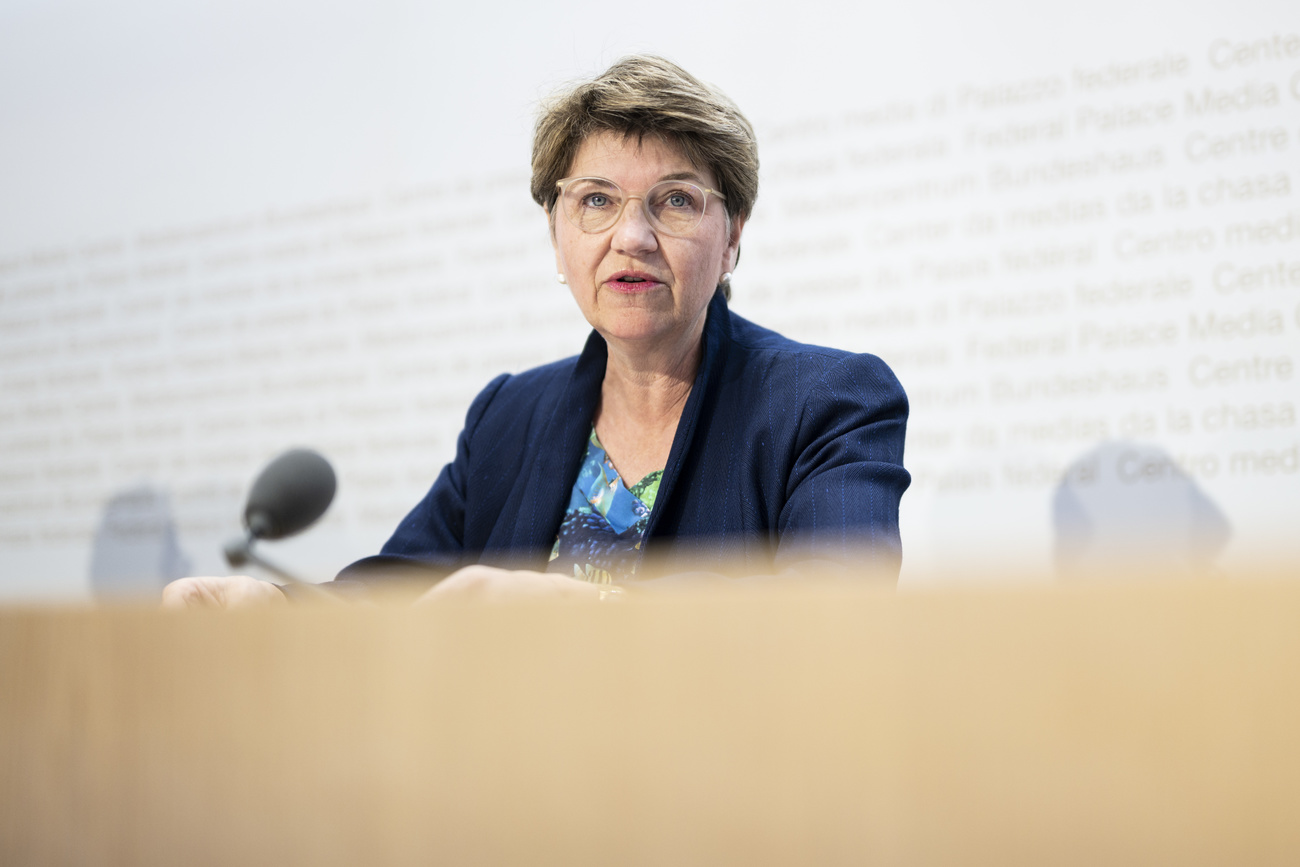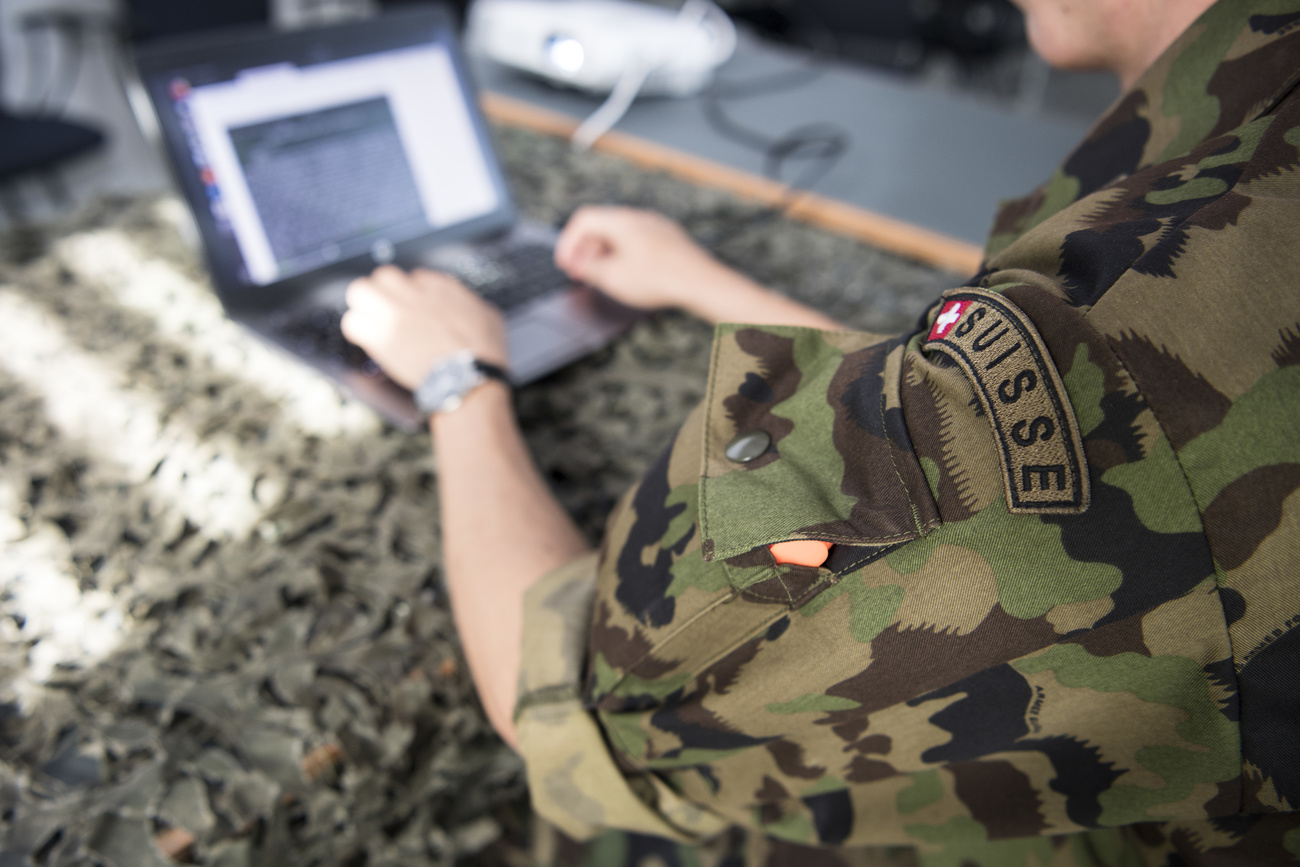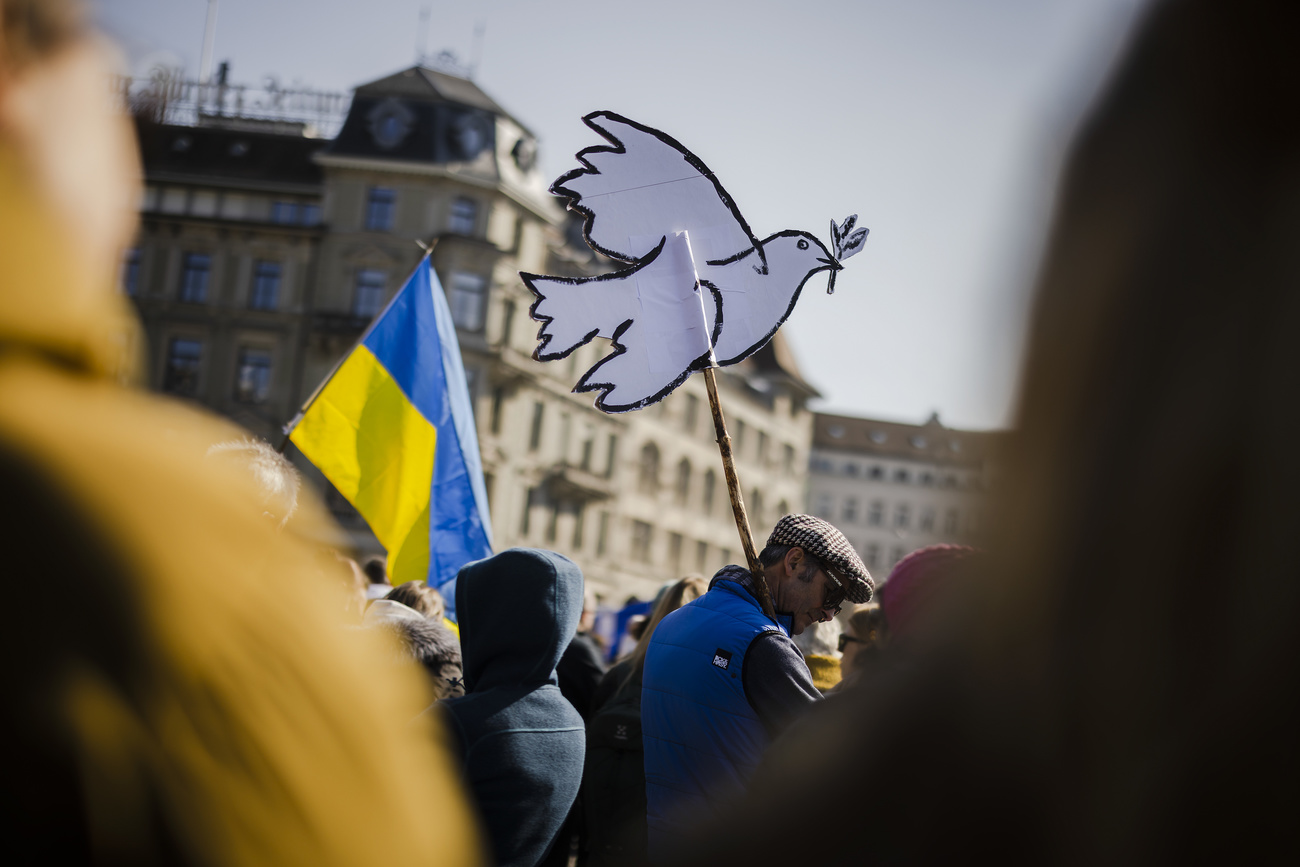
Swiss defence minister repeats calls for stronger army

The Swiss armed forces need to be boosted and better prepared, and not just in the short term, argues Defence Minister Viola Amherd. Nato membership however is “not an option”.
The promotion of peace internationally is “an important task for the army”, but right now “we also need to talk about how to protect the Swiss population from danger,” Amherd said in an interview with the SonntagsZeitung newspaper.
While a direct attack on the country is extremely unlikely, Amherd said Switzerland could be affected by the “effects of international conflicts”, for example via cyber-attacks. Warring parties could also try to fly over Swiss airspace, if not properly defended.
As for the budget question, Amherd was cautiously supportive of the suggestion by two political parties earlier this week to raise the army’s funding from CHF5 billion to CHF7 billion per year – but only if this is a long-term change, she said.
The money could be used to accelerate the priority processes already underway: renewing the air force fleet, better preparing for cyber-attacks, and re-arming ground troops.

More
Swiss army to beef up cyber defence with command centre
No NATO
However, as for the question of Switzerland’s relationship to NATO – which the NZZ am Sonntag calls Bern’s “defence and security taboo” – Amherd said for her it’s “not an option”.
“In that case we would be in a [military] alliance and would have to give up our neutrality,” she said. Rather, “as a sovereign and neutral country, we should primarily be capable of protecting ourselves. We can’t just rely on others.”
In addition, she said, things would become more expensive in the alliance: “like all other NATO members, we would have to invest 2% of annual GDP in defence”.
Currently, according to SRF, Swiss military investment is slightly less than 1% of GDP each year.

More
Demonstrations for peace draw thousands in Swiss cities
F-35 debate
Earlier this week, Amherd caused some bother when she told public television RTS that the campaigners behind an initiative to stop the purchase of new F-35 fighter jets should drop their project.
And while she tempered these comments in the interview on Sunday – saying it was an “invitation” to the opponents rather than a “demand” – Amherd maintained that any delays in the purchase of the new jets could cause problems.
If the purchase – the funding for which was narrowly approved by voters in 2020 – is not finalised “soon”, then other countries could skip ahead of Switzerland in the queue to buy the jets from the American Lockheed-Martin firm, Amherd claimed.
The initiators behind the anti-F-35 purchase – mainly left-wing and pacifist organisations – said this week they were not planning to drop the initiative, despite Amherd’s statements, which they claimed have only strengthened their resolve.
Currently, according to the NZZ am Sonntag, the anti-F-35 campaign has collected some 85,000 signatures; it has until March 2023 to reach the 100,000-mark required to force a national vote.

In compliance with the JTI standards
More: SWI swissinfo.ch certified by the Journalism Trust Initiative






























You can find an overview of ongoing debates with our journalists here . Please join us!
If you want to start a conversation about a topic raised in this article or want to report factual errors, email us at english@swissinfo.ch.